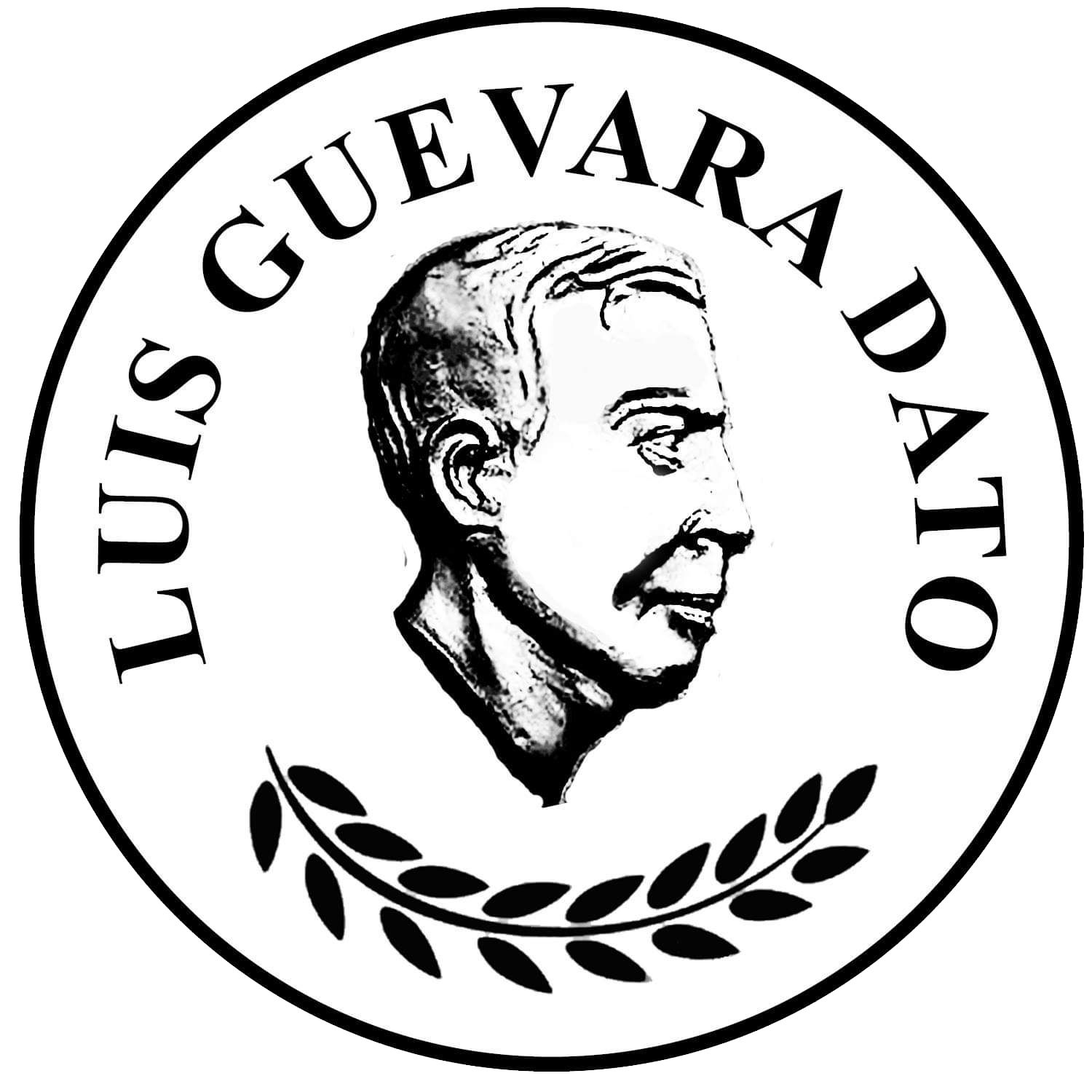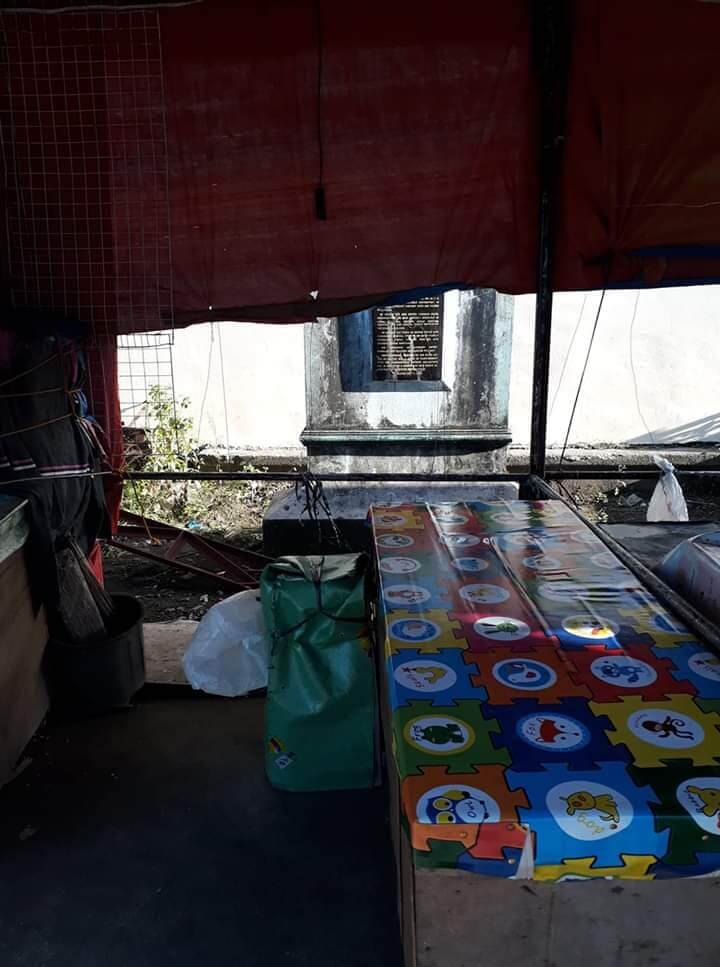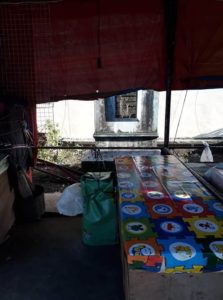The article is posted by Tito Valiente in the Bicol Mail on February 6, 2020
By Tito Genova Valiente
How do I write about a town and its forgetfulness? I could write about a town and how it forgets its marker and poet.
After writing about the town of Pili (see Bicol Mail issue dated January 30, 2020), I was not planning to write about Baao. There was an intention already to do tiny ethnographies of the towns in Bikol but Baao was not next in the list.
The choice of Pili came thru a perceived ordinariness in what should be an extraordinary town made a capital of this province. Baao is not ordinary given the illustrious sons and daughters coming from the place. Think of the Bernases and the Arroyos. Think of Barlin.
Think of Luis G. Dato.
We were thinking of him – Dato – when we visited Baao last week. Kristian Cordero wanted to check the marker built to honor the poet in 2012. He wanted to show it to me as well as he has started preparing for the Philippine International Literary Festival (PILF) in April this year. PILF is an international event under the auspices of the National Book Development Board and Kristian sees it as the time to honor the role of literatures in societies. There would be a conference and a writer’s workshop. There would be tributes for the Bikol writers: Socorro Federis-Tate of Iriga, Delfin Fresnosa of Sorsogon, to name two grand characters of national fame.
And there is, as a matter of course, Dato. And there was his marker beside the St. Bartholomew Church of Baao, covered by makeshift stores and carinderia, the ground around it littered with trash and dirt. Hidden. Ignored.
If Baao and its cultural group has maybe forgotten about Dato, we, lovers of literature, should not. How could we?
He was up there, anthologized by other poets like Jose Garcia-Villa long before most of us could even spell the word “anthology.”
Online, Dato must be one Bikolano poet most written about by students of literature. There are formalist readings of his works, which means that people or critics focus a lot on the value of the literary work unto itself, obsessing about persona, paradox and irony, among other things. This approach, it must be said, had its heyday in the 50s. It is not fair to frame Dato within this school of thought unless it is to illustrate the history of literary criticism. As with other approaches to Dato’s works, I have yet to see a deconstruction of his poetry, which is to question with both tenderness and trenchant voices not the person in the poem but behind it.
Socorro Federis-Tate, way ahead of other English Literature teachers, would single out Luis Dato’s verses because of one thing – its unabashed sensuality hidden vaguely behind the writer’s smile and smirk. To not see this quality is to betray one’s ignorance of Dato’s poetics and, maybe, one’s personal prudery and misplaced demureness.
Two of his most anthologized poems, The Spouse and The Day in the Farm, carry this fleshliness that straddles between the sybaritic and the thoughtfully spiritual.
In her course, English 7-8, titled “Philippine Literature in English,” during the 70s when English courses were taught daily in Ateneo de Naga, Mrs. Tate, as we would refer to her, would dismiss the last stanza of The Spouse. You know, the one that has these lines: O somber mystery of eyes unspeaking,/O dark enigma of Life’s love forlorn…
Present-day critics would also rant about how didactic that stanza is. But, as with Mrs. Tate and those who see through the daring of Luis Dato, the first three stanzas of The Spouse are gifts from the heaven of language. The poem begins with a landscape of beauty, of a woman melodramatically with a rose in hand, moist eyes young with weeping.
“Why ‘moist?’” “Why is she weeping?” I could hear the glistening clipped accent of Mrs. Tate, the glint now transferred to those eyes as she prodded us to proceed to the next stanza. Her hair disheveled in the night of passion,/Her warm limbs humid with the sacred strife.
The critic in Socorro Federis-Tate had become a woman, relentless. “Disheveled,” she was stressing the verb. Her voice caressed the “warm limbs” and a suppressed laughter spiked through the adjective “humid.” Then the more difficult question came: “what is this sacred strife?”
We were lost. We were gained. We all became men and women for each sensual other that late afternoon as the writer and teacher guided us to the very value of Luis Dato’s poetry. It was not being the first Bikolano writer recognized by poets and critics for the excellent skills in verse-making but in that daring, in that sense of adventure with a language that was not his. He was also navigating the rigid moral standards of the day by using a language effacing to an extent a lust for life demonized, as always, by a code of conduct vouchsafed not by a colonial past but by a colonial present. He, with Garcia-Villa and Angela Manalang-Gloria, troubled the Philippine society then not ready for the power of language and the freedom inherent in the arts.
Was not Dato just in his 20s when he wrote The Day on the Farm?
Not anymore didactic as the previous poem, The Day on the Farm narrates in a small space a woman sulking. She is crying even as her man has already brought her flowers and fruits. He even did something that should end the grief: I’ve caught you in my arms an hour and taught you/Love’s secret where the mountain spirits meet.
“How does one teach love’s secret?” It was the voice of Mrs. Tate shivering in the heat of the afternoon sun. Her hand was on her hip as she surveyed us, clueless lovers and innocent poets
We are always too young for the truths. I wished I had told Mrs. Tate about what I thought about the Bikol voice of Luis Dato in the last two magnificent lines of that poem about a day in the farm. Remember these lines: Come with me, love, you are too old for crying… Gurang na nagpaparahibi pa.
But Dato does not end there. He ends the poem with a benediction and a spell: The church bells ring and I hear drops of rain.
Any critic worth his or her soul can write a paper out of that last line. And not forget Luis G. Dato, the peerless, fearless poet of the quiet town of Baao.




